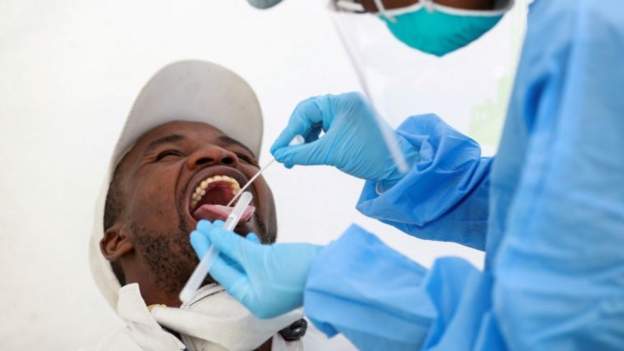The Centers for Disease Control and Prevention is shortening the recommended quarantine period from 14 days after a person has been exposed to the coronavirus, offering two alternatives, the agency said Wednesday.
The first alternative is to end quarantine after 10 days if no symptoms are reported, Dr Henry Walke, the CDC’s Covid-19 incident manager, said on a call with reporters. The second option is to end quarantine after seven days if an individual tests negative and also reports no symptoms.
The decision is based on new research and modeling data, Walke said.
Shortening the length of quarantine "may make it easier for people to take this critical action, by reducing the economic hardship associated with a longer period, especially if they cannot work during that time," Walke said.
It's unclear how many Americans exposed to the virus have complied with the 14-day guidance since the pandemic began.
According to Walke, the CDC has heard "anecdotally from our partners in public health that many people are discontinuing quarantine ahead of time because there's pressure to go back to work, to get people back into school, and it imposes both a mental and possibly also physical burden on individuals."
A shorter quarantine period may also make individuals more likely to cooperate with contact tracers, he said.
Still, the shorter periods do come with a small risk that a person may be infected when he or she leaves quarantine. For the 10-day quarantine, the risk of being infected is about 1 per cent, Dr John Brooks, the CDC's chief medical officer for the Covid-19 response, said.
For the seven-day quarantine with a negative test, the risk is about 5 per cent.
Walke noted that a 14-day quarantine is still the best way to reduce the risk of spreading Covid-19.
The initial 14-day quarantine guidance was based on the incubation period for the virus, that is, the length of time it can take for a person to become infected after exposure.
Even with the shortened quarantine periods, people should monitor for symptoms for a full 14 days after exposure, the CDC advises.
Either a PCR test or a rapid antigen test can be used to end quarantine after seven days. The test can be given anytime in the 48 hours before quarantine ends, Brooks said — meaning no earlier than day five of quarantine.
Even with a negative test on day five, however, a person still must complete the full seven days.
And if the test doesn't come back by the end of seven days, the person must quarantine until results come back, or until day 10.
The CDC also issued guidance for upcoming holiday travel, ultimately urging people to postpone travel if possible.
However, those who do choose to travel should get a coronavirus test one to three days before travel, then again three to five days after travel.
The testing after travel would be combined with a quarantine for seven days.
Latest Stories
-
Make choices that represent Ghanaians – Ken Agyapong tells party delegates
3 minutes -
It’s simple: macho has married political greed
13 minutes -
Africa’s reparations call now a unified demand – President Mahama
23 minutes -
Government Communications Minister urges PR officers to embody efficiency and professionalism
24 minutes -
Mahama’s cost-cutting measures signal new era of fiscal discipline
46 minutes -
Today’s Front pages: Friday, July 18, 2025
47 minutes -
Battery swapping is the missing link in EV adoption – Here’s what we’ve learned
2 hours -
Defence Minister commends Ghana Armed Forces personnel during extensive Garrison visit
2 hours -
Ghana Armed Forces set to recruit 12,000 as Defence Minister pledges transparency
3 hours -
Baby stolen during Argentina’s military rule found after 48 years
3 hours -
US passes first major national crypto legislation
3 hours -
Netflix boss says AI effects used in show for first time
3 hours -
I was raised in a very politically aware family – NAPO
3 hours -
I was raised to serve – NAPO shares deep-rooted calling to public duty
4 hours -
Trump orders officials to ‘produce’ more Epstein documents after mounting pressure
4 hours

